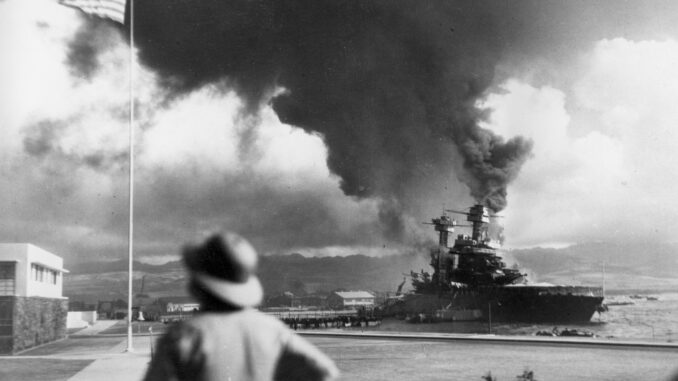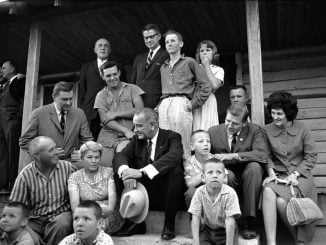
Dec. 5
1848: President James K. Polk sparked the Gold Rush of ’49 by confirming that gold had been discovered in California.
1933: Prohibition came to an end as Utah became the 36th state to ratify the 21st Amendment to the Constitution.
1952: The Great Smog of London descended on the British capital; the unusually thick fog, which contained toxic pollutants, was blamed for causing thousands of deaths.
2013: Nelson Mandela, the antiapartheid leader who became South Africa’s first black president, died at age 95.
Dec. 6
1865: The 13th Amendment to the U.S. Constitution, abolishing slavery, was ratified.
1907: The worst mining disaster in U.S. history occurred as at least 361 men and boys died in a coal mine explosion in Monongah, West Virginia.
1923: A presidential address was broadcast on radio for the first time as Calvin Coolidge spoke to a joint session of Congress.
1969: A free concert by The Rolling Stones at the Altamont Speedway in Alameda County, California, was marred by the deaths of four people, including one who was stabbed by a member of the Hells Angels Motorcycle Club.
Dec. 7
1941: The Empire of Japan launched an air raid on the U.S. Navy base at Pearl Harbor in Hawaii, killing more than 2,300 Americans.
Dec. 8
1941: The United States entered World War II as Congress declared war against Imperial Japan a day after the attack on Pearl Harbor.
1949: The Chinese Nationalist government moved from the Chinese mainland to Formosa as the Communists pressed their attacks.
1980: Former Beatle John Lennon was shot to death outside his New York City apartment building by Mark David Chapman.
2016: John Glenn, whose 1962 flight as the first U.S. astronaut to orbit the Earth made him an all-American hero and propelled him to a long career in the U.S. Senate, died at age 95.
Dec. 9
1854: Alfred, Lord Tennyson’s famous poem “The Charge of the Light Brigade” was published.
1965: “A Charlie Brown Christmas,” the first animated TV special featuring characters from the “Peanuts” comic strip by Charles M. Schulz, premiered on CBS.
1992: Britain’s Prince Charles and Princess Diana announced their separation.
Dec. 10
1817: Mississippi was admitted as the 20th state of the Union.
1964: Martin Luther King Jr. received his Nobel Peace Prize in Oslo, saying he accepted it “with an abiding faith in America and an audacious faith in the future of mankind.”
1967: Singer Otis Redding, 26, and six others were killed in a plane crash.
2005: Actor-comedian Richard Pryor died at age 65.
Dec. 11
1816: Indiana became the 19th state.
1941: Germany and Italy declared war on the United States; the U.S. responded in kind.
1936: Britain’s King Edward VIII abdicated the throne so he could marry American divorcee Wallis Warfield Simpson; his brother, Prince Albert, became King George VI.
2008: Former Nasdaq chairman Bernie Madoff was arrested, accused of running a multibillion-dollar Ponzi scheme that wiped out the life savings of thousands of people and wrecked charities.


